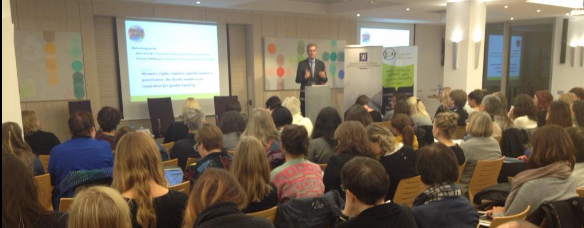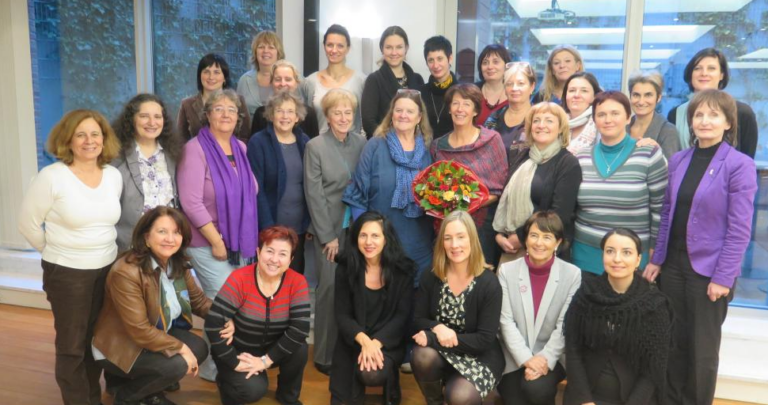[Nicosia, 01 July 2011] The Mediterranean Institute of Gender Studies, member of the Cyprus Women’s Lobby, the EWL’s national coordination in this country, expresses its deep concern over the placement of Cyprus in the “Tier 2 Watch List”, according to the annual report of the US State Department Office to Monitor and Combat Trafficking in Persons. That is, Cyprus has been placed in the third out of four categories (Tier 3 being the worst) since the Government does not fully comply with the minimum standards as prescribed in the US “Trafficking Victims Protection Act 2000” for the elimination of human trafficking.
The report focuses on the failure of the Cyprus state to vigorously prosecute and convict trafficking offenders. Only a handful of traffickers were convicted over the course of 2010, while punishments were inadequate and non-preventive. Despite 41 ongoing prosecutions by the end of 2009, the government secured convictions in only three cases. Punishments are “woefully inadequate” with the highest penalty in 2010 being a 12 month sentence. “The sheer fact that legal penalties do not provide a real deterrent and are not preventive, sends the message that human trafficking is one of the most profitable and risk-free businesses, given that it is possible for a criminal, even if convicted, to eventually get away with just a few months in prison”, says Ms. Susana Pavlou, Director of the Mediterranean Institute of Gender Studies. Moreover, the government has not yet proceeded with the prosecution and conviction of officials complicit in trafficking; eliminating thus the corruption within government departments that perpetuates and exacerbates the problem.
State policies and procedures undertaken for the identification and protection of victims are inadequate, while the government lacks the necessary inter-departmental coordination and expertise required from front-line services dealing directly with victims. It is therefore vital, as MIGS and other NGOs have repeatedly emphasised, to reinforce cooperation between government authorities and NGOs, particularly in relation to the protection and support of trafficking victims.
The report also highlights that the change in policy with regard to the abolishing of the “artiste” visa, has been ineffectual as far as combating human trafficking is concerned. To echo MIGS’ previous warnings, the root of the problem lies is the continuing demand for sexual services which creates the ideal environment for trafficking offenders. Within this context, MIGS has recently released the results of a research study examining the relationship between male demand for sexual services and trafficking for the purpose of sexual exploitation.
MIGS strongly encourages the Cyprus Government to seriously consider the aforementioned recommendations, as well as those of other bodies that monitor state measures to combat trafficking n human beings, as an opportunity for constructive dialogue. MIGS highly recommends that these issues are put on the agenda in forthcoming meetings of the Multidisciplinary Coordinating Group for Trafficking in Human Beings, and the House Committee for Human Rights and Equal Opportunities between Men and Women, for the purposes of finding immediate and adequate solutions to comprehensively address the issue of trafficking in Cyprus.


